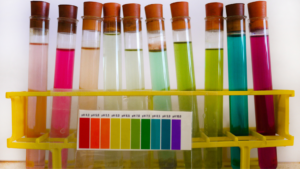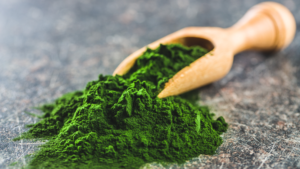
In a world where cleanliness is often equated with healthiness, it’s easy to fall into the trap of over-sanitization. With the constant bombardment of messages promoting antibacterial soaps, sanitizers, and disinfectants, many of us have become accustomed to the idea that the more we sanitize, the safer we’ll be from illness. However, this notion of extreme cleanliness may not only be unnecessary but could also be detrimental to our overall well-being.
Good hygiene practices undoubtedly play a vital role in preventing the spread of infectious diseases. Washing hands regularly, cleaning surfaces, and maintaining personal hygiene are all essential habits. However, the excessive use of antibacterial products can disrupt the delicate balance of microbes that reside on and within our bodies, collectively known as the microbiome.
The microbiome is a diverse community of bacteria, fungi, viruses, and other microorganisms that coexist with us in symbiosis. These microbes are not only harmless but also beneficial, contributing to various physiological functions, including digestion, metabolism, and immune regulation. When we excessively sanitize our environment, we not only eliminate harmful pathogens but also disrupt the beneficial microbes that help keep us healthy.
One of the main concerns with excessive cleanliness is its potential to weaken the immune system. Our immune system relies on exposure to a diverse array of microbes to develop and function optimally. By constantly sterilizing our surroundings, we limit this exposure, depriving our immune system of the stimuli it needs to stay vigilant and responsive. As a result, individuals who grow up in excessively clean environments may have a higher risk of developing allergies, asthma, and other autoimmune disorders.
Furthermore, the widespread use of antibacterial products has led to the emergence of antibiotic-resistant bacteria, posing a significant public health threat. Overuse of antibiotics in household products and personal care items has fueled the development of superbugs that are resistant to treatment, making infections more difficult to manage and control.
But it’s not just our physical health that suffers from extreme cleanliness; our mental well-being can also be impacted. Obsessive-compulsive behaviors related to cleanliness, such as excessive hand washing or germophobia, can lead to anxiety and stress. Constantly worrying about germs and cleanliness can take a toll on our mental health, affecting our quality of life and overall happiness.
So, what can we do to strike a balance between good hygiene and preserving our microbiome?
First and foremost, it’s essential to prioritize basic hygiene practices without going overboard. Washing hands with regular soap and water is often sufficient for removing dirt and harmful bacteria without disrupting the microbiome. Save the antibacterial products for situations where the risk of infection is higher, such as when handling raw meat or caring for someone who is sick.
Additionally, incorporating probiotic-rich foods into our diet can help support a healthy microbiome. Foods like yogurt, kefir, sauerkraut, and kimchi contain beneficial bacteria that can replenish and diversify the microbes in our gut. Consuming a diverse range of fruits, vegetables, whole grains, and legumes also provides essential nutrients and fiber that nourish our gut bacteria.
Spending time outdoors and exposing ourselves to natural environments can also benefit our microbiome and overall health. Outdoor environments harbor a diverse array of microbes that can help strengthen our immune system and promote overall well-being. Gardening, hiking, or simply taking a walk in the park are all excellent ways to reconnect with nature and reap the health benefits it offers.
Lastly, it’s crucial to foster a mindset of acceptance and moderation when it comes to cleanliness. While it’s essential to maintain a clean and hygienic environment, we shouldn’t strive for sterility at the expense of our microbiome and mental well-being. Embracing a more relaxed attitude towards cleanliness and accepting a certain level of microbial exposure can help restore balance and harmony within our bodies.
In conclusion, extreme cleanliness may not be as beneficial as once thought and could actually have adverse effects on our health. By striking a balance between good hygiene practices and preserving our microbiome, we can support a strong immune system, reduce the risk of allergies and autoimmune disorders, and promote overall well-being. So let’s embrace a more holistic approach to cleanliness—one that prioritizes health without sacrificing the diversity and resilience of our microbial companions.



